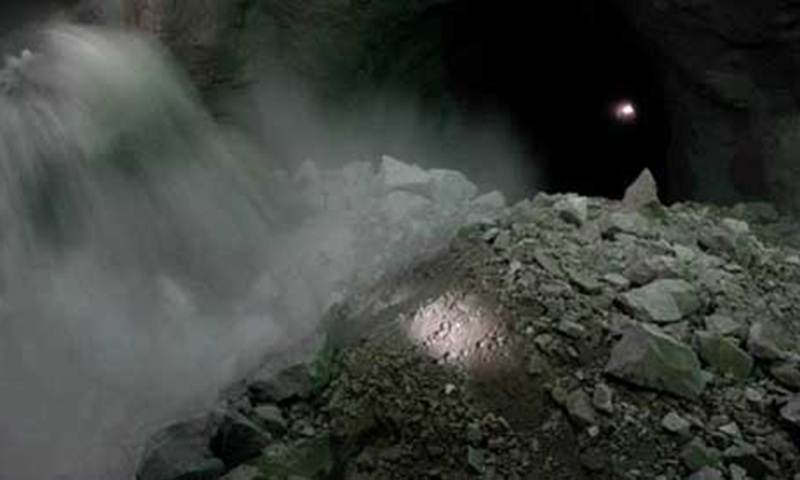THE dispute between Pakistan and Tethyan Copper Company (TCC) over the Reko Diq mines in Balochistan appears to be headed to an out-of-court settlement. Earlier, the Supreme Court, in an order passed in January 2013, had declared void the Chagai Hills Exploration Joint Venture Agreement (CHEJVA) signed between the Balochistan government and Australian mining company BHP in 1993.
BHP later sold its stakes to a then unknown TCC, which ran the mine till the case started in 2008.
As the litigation continued, TCC also approached the International Centre for Settlement of Investment Disputes (ICSID), initially citing breach of contract. However, the ICSID also denied its contention of mine ownership. The company then argued for loss of investments amounting to $400 million, and appears to have presented a case for a favourable verdict. However, it also appears willing to reach a compromise if allowed to maintain a stake in the lucrative venture.
Take a look: ADB to help resolve Reko Diq row
Inside sources say the case is largely handled by the Balochistan government, which is said to be under pressure from the Centre to reach an out-of-court settlement. Balochistan Chief Minister Dr Abdul Malik Baloch denied this, after allegations by opposition parliamentarians accusing the government of giving in to TCC, saying he would not “sell a stone of Reko Diq”.
So what exactly is Reko Diq, a dusty little town located in Chagai — of nuclear-test fame — district? The Reko Diq mines have been the centre of much controversy since their discovery by BHP. CHEJVA, signed in 1993 by Balochistan’s then caretaker chief minister Naseer Mengal, granted exploration rights to BHP for the entire Chagai area. This was the start of a series of executive decisions that appear to have injured Pakistan’s interests.
The agreement gave BHP a 75 per cent share in discoveries made in the next 56 years over the 3.3 million acre area. The Balochistan government got a 25pc share on a joint-investment basis, and a mere 2pc royalty.
Subsequently, between 1993 and 1997, exploration marked out 14 potential sites containing 48 pockets for excavation, collectively called the Reko Diq complex.
BHP obtained licences for mineral exploration here, and almost immediately at a site called EL-5, clear gold and copper deposits were discovered after a shallow dig.
‘Highway robbery’
“This is when the international mining community got an idea of the potential of Reko Diq and moved quickly and quietly to put their own interests first,” said Naeem Awan, a Karachi-based former Pakistan Muslim League-Nawaz legislator, whose petitions related to the matter first brought the case to the SC’s notice. “What they have done since is highway robbery, while those who should be guarding Pakistan’s interests continue to look the other way.”
Geological literature and interviews with experts reveal that Chagai district is part of a belt called the Tethyan Magmatic Arc, which extends thousands of kilometres from Europe into Mongolia. The arc is a known reservoir for rare metals, and Pakistan’s share lies underneath the region between Chagai and North Waziristan.
Recent estimates by various geological organisations, including the US Geological Survey, put the value of the entire block between one to three trillion dollars. Some geologists contend that this is a low-end estimate as it does not take into account ‘rare earth’ materials essential to new fields such as nanotechnology and semiconductors.
Many questions
In this situation, and given the nearby location of the Saindak mines, there was a very high possibility of finding gold in Chagai district. Why, then, was a 25/75pc deal signed, while the precedent was a 50/50pc deal with the much-maligned Chinese in Saindak? More importantly, why was such a deal — signed by the unelected, interim Moeen Qureshi caretaker set-up — allowed to continue unquestioned till 2008? Further, it must be asked why no independent assessment has been done of the deposits in Reko Diq.
It also appears that TCC itself has something to hide.
The TCC website says Reko Diq’s “economically mineable portion” is “2.2 billion tons, with an average copper grade of 0.53pc and gold grade of 0.3 g/ton.” This means that approximately 10 million tons of copper and 13 million ounces of gold are available to be mined.
But another study by TCC geologists — published by the Society of Geologists in 2008 — says that the copper-gold deposit at Reko Diq “is world class and contains 18 million tons of copper and 32 million ounces of gold”. This means TCC is understating the copper deposits by eight million tons and the gold by 19 million ounces. Even this estimate makes it the tenth largest mine in the world. Experts believe a proper evaluation would take it to at least the number five rank in the list.
Why is this being done?
The answer lies in how BHP’s stake was taken over by Mincor Resources NL (one of the largest mining companies in the world) which set up TCC as a front. The company was later acquired by the Canadian-Israeli owned Barrick Gold (said to be the real power behind TCC), which also brought the Chilean Antofagasta to share the risk.
Barrick Gold is the largest mining firm in the world, and along with Antofagasta, controlled 75pc of Reko Diq till the SC stepped in.
Current estimates, which are considered quite conservative, say Reko Diq’s revenues should be $240-$260bn over a 40-year period. Pakistan’s share of this would potentially add nearly $1.5bn to national GDP.
However, TCC’s offer was $54bn over a 30-year period, including a clause to take all the raw gold and copper out of Pakistan “for refining purposes”.
With this background, suspicions are naturally created as to why Pakistan’s leadership is in such a hurry to sell what could be a major factor in alleviating the country’s economic woes.
Published in Dawn, January 23rd, 2015
On a mobile phone? Get the Dawn Mobile App: Apple Store | Google Play













































